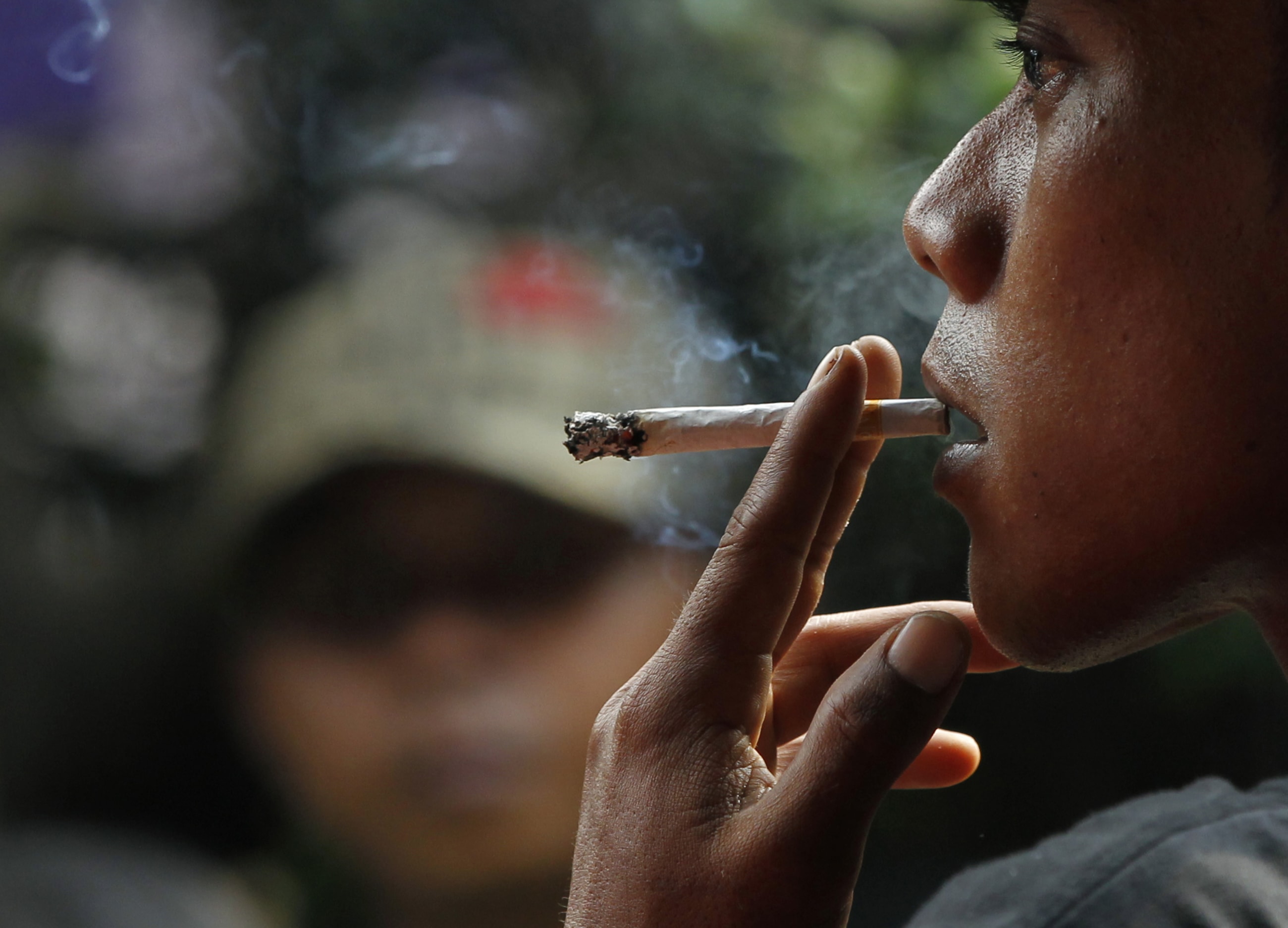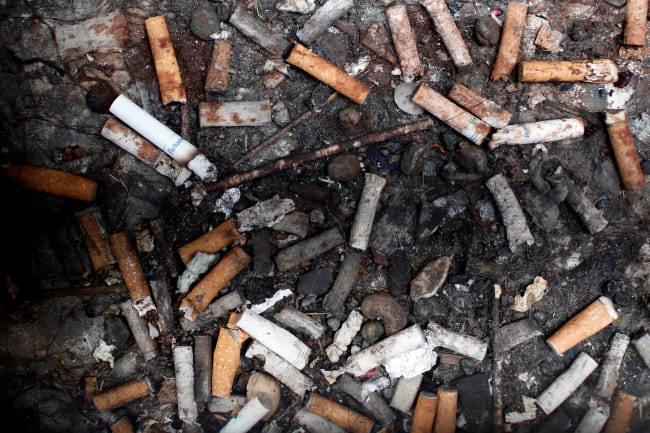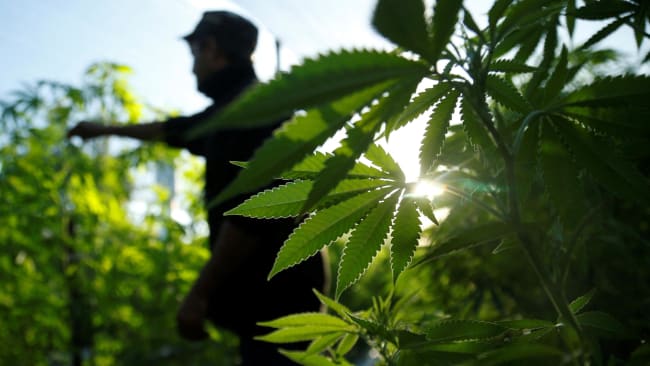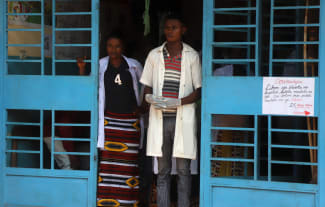In Indonesia, where the smoking prevalence among men is the highest in the world, one would think that conversations about harm reduction policies would be front and center of presidential platforms ahead of the country's general elections on February 14. Yet the issue is missing from the vision and mission of Indonesia's three major candidates, which continues a trend from the 2019 election, when campaigns also failed to address tobacco control. The tobacco industry's profound influence, extending from farmers to executives, has a substantial impact on the country's economy and politics. We discuss how and why it happens.
Indonesia's Tobacco Impact on the Nation
More than 70 percent of adult men smoke in Indonesia, a testament to how commercial advertising harms the population's health. This aggressive marketing combines with weak policies to strengthen tobacco addiction, eroding individual health outcomes and undermining the financing of the national health system.
Uptick in Tobacco Use Driven by Adult Men
Nearly 3 out of 4 men smoked in Indonesia in 2020
The financial cost of tobacco addiction is evident in the most recent report from Badan Penyelenggara Jaminan Sosial Kesehatan (BPJS), Indonesia's national health insurance agency. After three consecutive years of surplus, BPJS is now in deficit. The primary cause is the high cost of treating noncommunicable diseases (NCDs) such as heart disease, stroke, cancer, and kidney failure, which are all linked at least partially to smoking. Global and regional trends show a decrease in premature death due to noncommunicable diseases, but progress to reduce the burden of cardiovascular disease has stagnated since the turn of the century. In 2000, 26.1 percent of premature deaths in Indonesia were attributable to NCDs. By 2019, the rate had decreased only slightly, to 24.8 percent.
The Tobacco Industry's Hold on Indonesia
The number of tobacco users in Indonesia has spiked over the past two decades, a nearly 40% increase since the year 2000
Data from the Badan Pusat Statisik Indonesia (Indonesia Central Agency of Statistics) Socio-Economic Survey 2022 reveal a concerning fact: Indonesian monthly public spending on tobacco has surpassed that on rice. Data from March 2022 reports that individuals each spent approximately $5.2 (Rp 82,183) on cigarettes and tobacco per month. The average monthly spending on rice, by contrast, was slightly less, at $4.6 (Rp 71,442) per person.
Tobacco has become the largest single expenditure group per capita, accounting for 12.3 percent of total expenses. In rural areas, that figure jumps to 14.7 percent of total expenditure, relative to 10.9 percent in cities. Those statistics show that tobacco is a primary consumer good and has a significant socioeconomic impact, particularly among low-income groups.
Little Progress Made on NCD Deaths in Indonesia
Compared to other countries in the region, Indonesia has seen only a small drop in the share of people dying from noncommunicable diseases (NCDs)
Efforts to regulate tobacco use—through increased taxation and smoking cessation programs—face substantial barriers. Tobacco companies in Indonesia make significant contributions to societal programs, including providing educational scholarships, sponsoring sporting events, and contributing financially to village development. The industry's success in marketing and its role in the economy, especially as an employer for lower-income women, amplifies those challenges.
Here is a breakdown of common perspectives:
Tobacco users. Many tobacco users in Indonesia view smoking as a way to help the government through tax contributions. This viewpoint is influenced by the substantial revenue generated by tobacco taxes, which leads some smokers to regard their habit as financially beneficial or even patriotic to the country despite the health risks. The attitudes of religious organizations toward smoking also vary. Some religious leaders advocate for its use and promote to disband the regulation to control tobacco, which can influence public perception and acceptance of smoking.
Farmers. Tobacco crops are a lucrative and manageable commodity for farmers, making the plant a popular choice for cultivation. Reducing tobacco consumption could harm farmers' livelihoods—a narrative that tobacco companies have aggressively promoted, effectively preventing regulatory action against the industry.
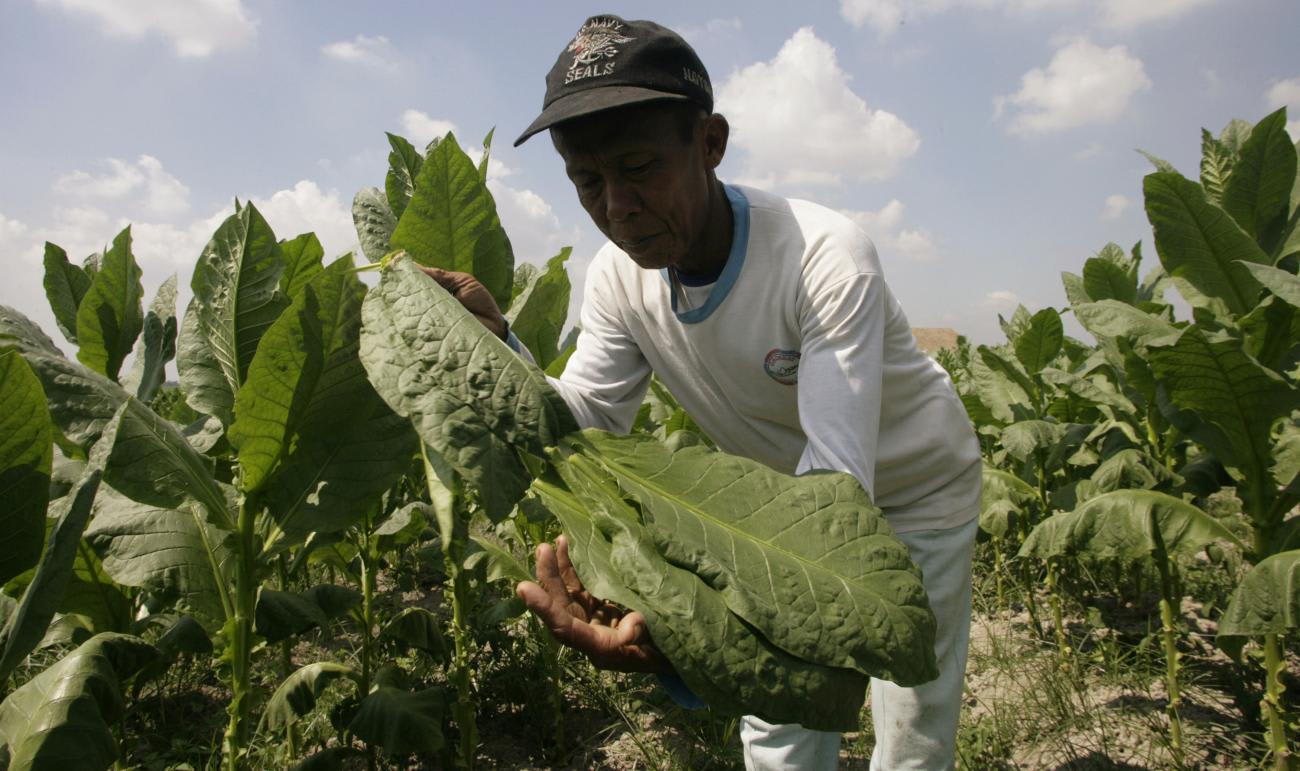
Blue-collar workers. The tobacco industry provides stable employment for blue-collar workers, offering comprehensive insurance, competitive salaries, and, in many cases, pension benefits. It primarily employs women, who contribute significantly to their families' economic stability. Despite the availability of more efficient industrial technology, to maintain job security and leverage in negotiations, the industry prefers manual labor.
White-collar workers. The tobacco industry ranks among the leading sectors for white-collar employment. It draws talent from prestigious educational institutions, resulting in a highly skilled workforce that includes elite legal, accounting, and strategic planning teams. That workforce transformed the tobacco industry into one of the nation's most agile and strategically advanced sectors.
Politicians. Like others, politicians face pressure from the tobacco lobby and public opinion, which can sway policy decisions. They also frequently consider the tobacco industry's economic benefits, which include significant tax revenue and job opportunities and creation. For context, tobacco taxes total $9.4 billion (Rp 150 trillion), which exceeds the national health budget of $7.6 billion (Rp 120 trillion). The tobacco industry also employs 650,000 people in the industry and around 500,000 in farming. That complex interplay of economic, political, and social factors can result in differing tobacco control approaches among politicians and governments.
Rural Communities Spend More on Cigarettes
Indonesians spent more of their budgets on cigarettes than essential foods like meat, eggs, and vegetables in 2022. In rural areas, spending on cigarettes was even greater
Will the Tobacco Industry Reign Over the 2024 Election?
Ministry of Health efforts to raise tobacco taxes and impose taxes on sugary foods and trans fats have encountered significant challenges, largely attributable to the industry's strong lobbying efforts, pushing back the planned 25 percent increase on tax to only 10 percent. It is no coincidence that the two wealthiest people in Indonesia are the owners of the biggest tobacco company. The tobacco industry's influence over tobacco control is evidenced by the WHO-FCTC ratification delay and the adoption of only partial tobacco control regulations.
Although approval on law at local level was a significant step forward for tobacco control in Indonesia, its delayed creation and implementation highlight the ongoing challenges that those involved in tobacco control face when navigating convoluted, dishonest institutions and powerful business interests. Its delayed creation and implementation highlight the ongoing challenges that those involved in tobacco control face when navigating convoluted, dishonest institutions and powerful business interests.
The absence of tobacco in debates among Indonesia's three presidential candidates has raised concerns for many public health professionals. To remedy those fears, politicians should take a strong stance against the tobacco industry, even if that comes with some loss of support or negative economic impacts. That way, they can both break the vicious cycle in which better health policies are delayed because of political and economic concerns and ensure better health outcomes for citizens.

